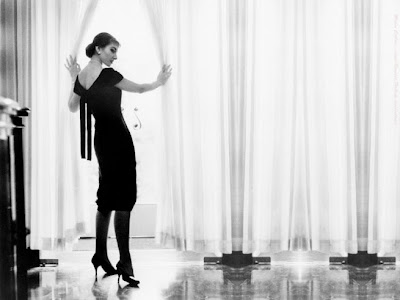Maria Callas was born in New York, New York, on December 3, 1923. She made her professional debut with the Royal Opera of Athens in Boccaccio, and took her first major role in Tosca. Her Italian opera debut took place at the Verona Arena in 1947. In 1954, Callas made her American debut in Norma. During the 1960s, the quality and frequency of her performances waned. On September 16, 1977, Callas died in Paris.
Early Life
American opera singer Maria Callas was born Cecilia Sophia Anna Maria Kalogeropoulus in New York, New York on December 3, 1923. Her parents, George and Evangelina, were Greek immigrants who shortened their last name to Callas once Maria started primary school.

When Maria was 7 years old, she started taking classical piano lessons but soon realized she loved singing the music—with dramatic flair—even more than playing it. In 1937, when Maria was a teen, her parents separated and she and her mother and sister moved back to Greece. In Athens, Maria, whose last name had been changed back to Kalogeropoulos, studied voice under Elvira de Hidalgo at the Royal Academy of Music. The school normally required that students be at least 16 years old, but the young Callas showed such great promise that they made a special exception.
As a student, Maria made her stage debut in a school production of Cavalleria Rusticana. For her dazzling performance in the role of Santuzza, Maria was awarded the Academy's prize.
Opera Career
When Maria was 16 years old, she made her professional debut with the Royal Opera of Athens in a modest role in Suppe's Boccaccio. In her early 20s, she took her first major role in Tosca.
During WWII, Maria struggled to find roles. She moved back to New York to spend time with her father and look for work, but the Metropolitan Opera turned her down. After the war, at the urging of her teacher, Maria changed her last name back to Callas and moved to Italy in pursuit of work. In Verona, she quickly met and married rich industrialist Giovanni Meneghini.
Callas' Italian opera debut took place at the Verona Arena in August of 1947, with a performance of La Gioconda. Over the next few years, under the management of her husband, Callas continued to perform in Florence and Verona to critical acclaim. Although her voice captivated audiences, as her fame increased, Callas developed a reputation as a demanding diva. Fiercely resilient, Callas said of audience members' jeers, "Hissing from the gallery is part of the scene. It is a hazard of the battlefield. Opera is a battlefield and it must be accepted."
In 1954, Callas made her American debut in Norma, at the Lyric Opera of Chicago. The performance was a triumph. In 1956, she at last had the opportunity to sing with the Metropolitan Opera in her home city of New York. Within three years of the performance, her health began to rapidly decline, as did her marriage. In 1960, Callas and Meneghini divorced because she was having an affair with shipping magnate Aristotle Onassis.
Later Years and Death
During the 1960s, Callas' formerly stellar singing voice was discernibly faltering. Her performances grew fewer and farther in between as a result of her frequent cancellations. Although she formally retired from the stage in the early 1960s, she made a brief return to performing with the Metropolitan Opera from January of 1964 through July of 1965. Her final operatic performance was in Tosca at Covent Garden on July 5, 1965.
In the early 1970s,
Callas tried her hand at teaching. In 1971 and 1972, she conducted
master classes at Julliard in New York. Despite her failing health,
Callas accompanied a friend on an international recital tour in 1973 to
help him raise money for his ailing daughter. Following the tour and
news of Onassis' remarriage to Jacqueline Kennedy, Callas moved to Paris
and became a recluse. On September 16, 1977, at the age of 55, Maria
Callas collapsed and died suddenly and mysteriously in her Paris home.
Taken from: http://www.womencitizen.com/world-21/who-is-maria-callas-biography-and-life-maria-callas-90th-birthday-google-doodle-celebrates-3070.html [02.12.2013]

No comments:
Post a Comment